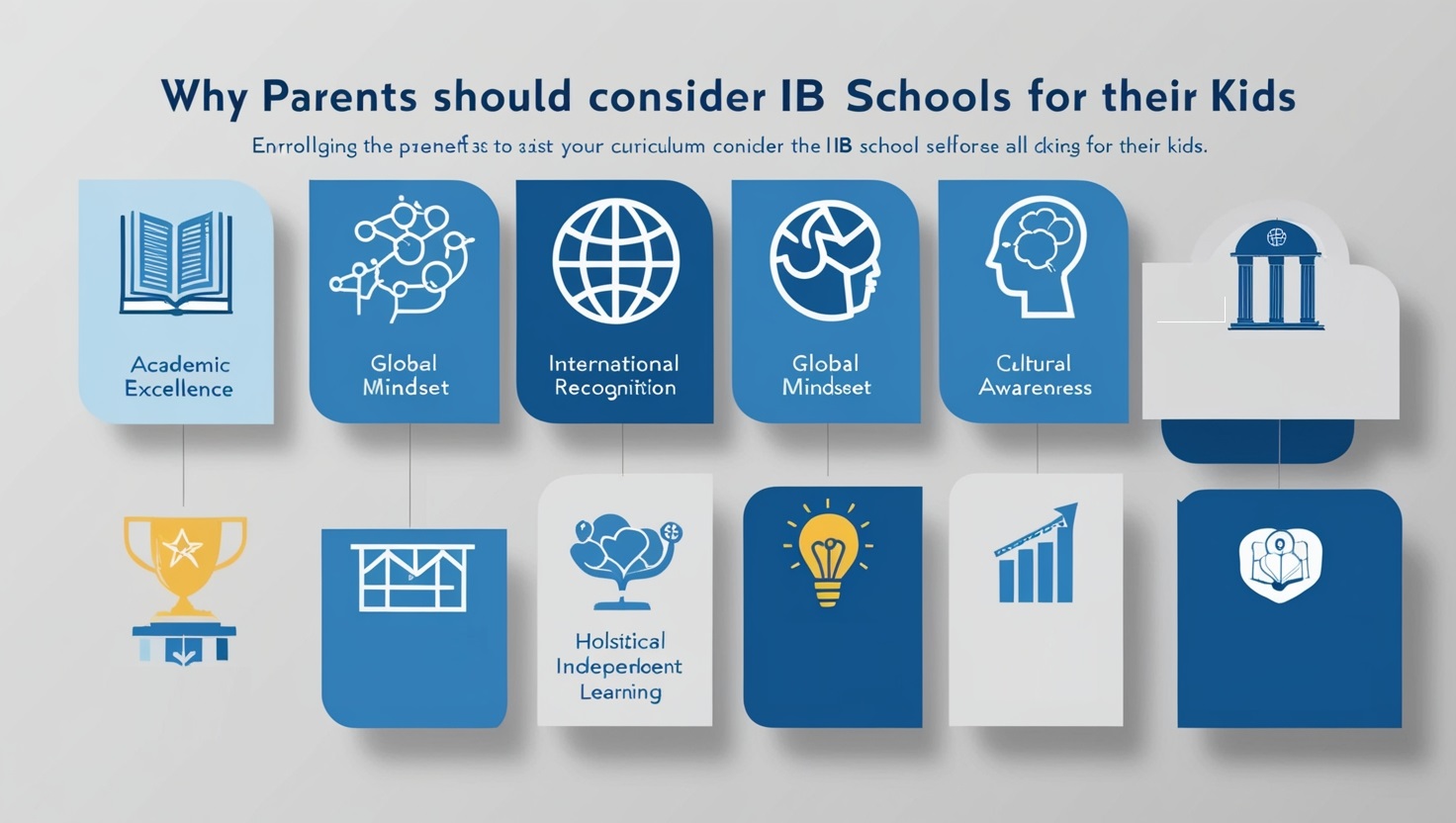Table of Content
- Introduction
- Holistic Education
- International Perspective
- Rigorous Curriculum
- Critical Thinking Skills
- Inquiry-Based Learning
- emotional-and-social-development
- Preparation for Higher Education
- Multilingualism
- Cultivation of Creativity and Innovation
- Focus on Personal Growth and Well-Being
- Conclusion
Parents often face the challenge of choosing the right education for their children from the many options available. Among other reasons, International Baccalaureate (IB) schools are a compelling option due to their all-round curriculum that is acknowledged worldwide. IB prepares students to succeed in an evolving globalised place. Here are some reasons parents should consider IB schools for their children:
- Holistic Education: IB schools are concerned with holistic education that nurtures well-rounded individuals beyond achieving academic excellence. It is meant to improve intellectual, emotional, and social aspects that enable students to think critically, solve problems, and gain a global view of things.
- International Perspective: Exposure to different cultures, languages, and perspectives is valuable in an era of globalisation. The institutions encourage learners to explore various cultural experiences and viewpoints by incorporating global issues into their teaching programmes, thereby promoting international-mindedness among their students. This helps them develop empathy, open-mindedness, and cultural intelligence so they can be productive in a global society.
- Rigorous Curriculum: The rigour and depth with which the International Baccalaureate curriculum has been known encourages students to engage with topics and think about concepts more deeply and critically. Regardless of whether they opt to follow either Primary Years Programme (PYP), Middle Years Programme (MYP) or Diploma Programme (DP), they will be exposed to high academic standards through inquiry-based learning that promotes creativity.
- Critical Thinking Skills: IB programmes develop critical thinking skills by promoting assumptions questioning, information analysis, and evidence evaluation among students. By studying critically how one makes inquiries and carrying out multidisciplinary approaches, students learn how to solve problems at high levels; this contributes much to success in the higher education environment or even the workplace.
- Emphasis on Inquiry-Based Learning: One key characteristic of IB education is its focus on inquiry-based learning, where students don’t just receive knowledge but question this information source while finding things themselves. This method inspires a desire to know, insight, and intellectual curiosity, encouraging students to take control of their learning process.
- Emotional and Social Development: In addition to academic excellence, IB schools consider emotional and social development important factors in education. For instance, through community service programmes, extracurricular activities, and the different attributes defined by the IB learner profile, learners develop socialisation abilities such as teamwork spirit and emotional intelligence. Therefore, a holistic approach to learning equips students with skills that can help them manage relationships efficiently and work well within various societies.
- Preparation for Higher Education: International Baccalaureate programmes have a high reputation among universities and colleges worldwide because their challenging curriculum emphasises critical thinking skills. Research has shown that these learners perform well in higher institutions of learning, making it easier to be admitted into top-ranked schools.
- Multilingualism: Most IB programmes offer language acquisition courses or immersion opportunities where students can acquire multiple languages. The value of bilingualism or multilingualism is becoming increasingly evident in today’s global economy, expanding an individual’s career prospects while sharpening cognitive adaptability.
- Cultivation of Creativity and Innovation: The IB system teaches students how to think critically, take risks, and generate new ideas for resolving real-life issues. These projects are usually done through presentations involving interdisciplinary studies such as the arts, so that students develop a creative mind and imaginative skills, which will help them become great entrepreneurs in the twenty-first century.
- Focus on Personal Growth and Well-Being: IB schools emphasise a holistic approach to student development to foster personal growth, well-being, and balance. The IB learner profile attributes, including thoughtfulness, balance, and discipline, assist in forming positive attitudes and ethical values among students. This concentration on wellness enables children to cultivate self-awareness and direction, thus establishing a foundation for lifelong flourishing.
Conclusion
International Baccalaureate (IB) schools present a compelling education experience that prepares students for success in an ever-changing world. From their whole-child approach to rigorous curriculum to their emphasis on critical thinking skills, inquiry-based learning methods and focus on personal growth, IB programmes provide students with tools needed to succeed academically, professionally and personally. Parents are therefore advised to choose IB schools because they offer transformative educational experiences that prepare students for becoming active global citizens who stand up for what is right while showing compassion towards others.
